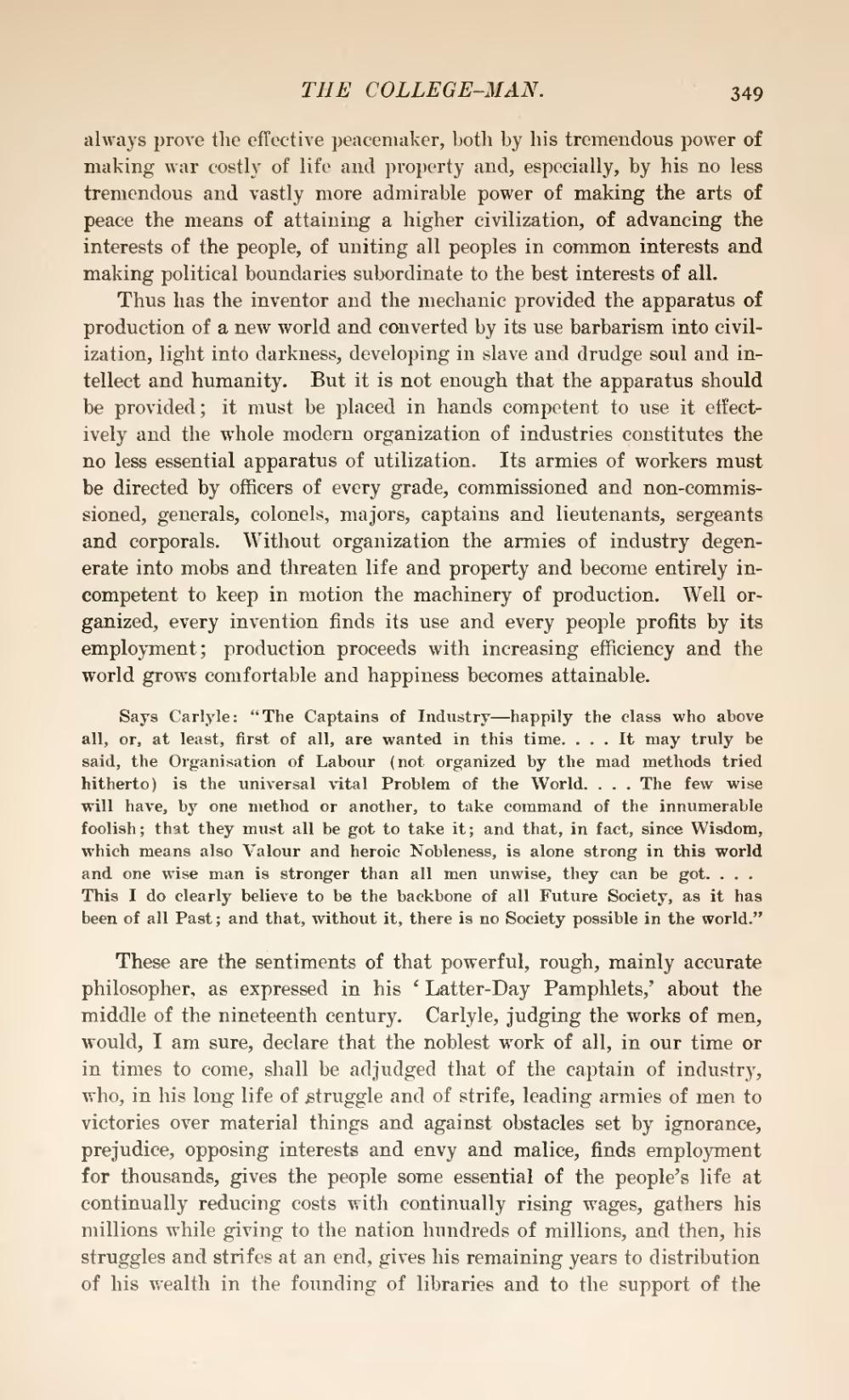always prove the effective peacemaker, both by his tremendous power of making war costly of life and property and, especially, by his no less tremendous and vastly more admirable power of making the arts of peace the means of attaining a higher civilization, of advancing the interests of the people, of uniting all peoples in common interests and making political boundaries subordinate to the best interests of all.
Thus has the inventor and the mechanic provided the apparatus of production of a new world and converted by its use barbarism into civilization, light into darkness, developing in slave and drudge soul and intellect and humanity. But it is not enough that the apparatus should be provided; it must be placed in hands competent to use it effectively and the whole modern organization of industries constitutes the no less essential apparatus of utilization. Its armies of workers must be directed by officers of every grade, commissioned and non-commissioned, generals, colonels, majors, captains and lieutenants, sergeants and corporals. Without organization the armies of industry degenerate into mobs and threaten life and property and become entirely incompetent to keep in motion the machinery of production. Well organized, every invention finds its use and every people profits by its employment; production proceeds with increasing efficiency and the world grows comfortable and happiness becomes attainable.
These are the sentiments of that powerful, rough, mainly accurate philosopher, as expressed in his 'Latter-Day Pamphlets, about the middle of the nineteenth century. Carlyle, judging the works of men, would, I am sure, declare that the noblest work of all, in our time or in times to come, shall be adjudged that of the captain of industry, who, in his long life of struggle and of strife, leading armies of men to victories over material things and against obstacles set by ignorance, prejudice, opposing interests and envy and malice, finds employment for thousands, gives the people some essential of the people's life at continually reducing costs with continually rising wages, gathers his millions while giving to the nation hundreds of millions, and then, his struggles and strifes at an end, gives his remaining years to distribution of his wealth in the founding of libraries and to the support of the

